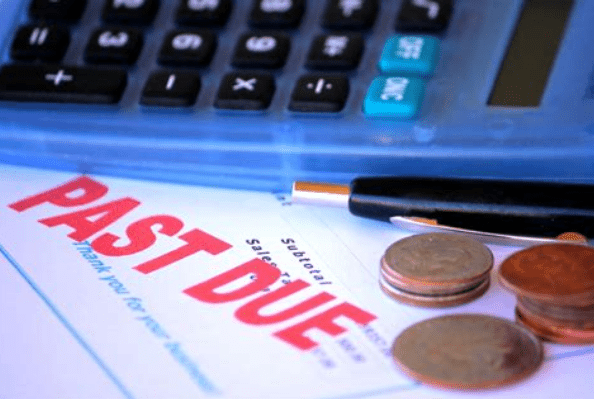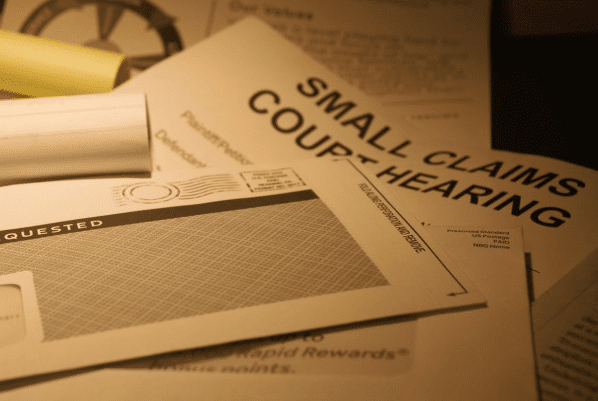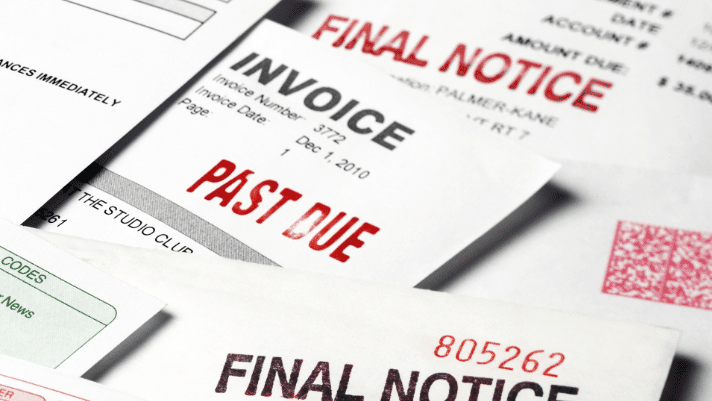If you’ve been sued for debt in Hawaii, it’s crucial to act promptly. You have just 20 days to respond before risking a default judgment. The best course of action is to submit a written Answer, addressing each claim in the Complaint and asserting any affirmative defenses you may have. With ZumaZip, you can draft and file your Answer swiftly and efficiently, ensuring you meet the deadline and protect your rights.
Dealing with relentless calls from debt collectors or facing a Summons and Complaint can be incredibly stressful. However, you’re not alone—many Americans are in similar situations. At ZumaZip, we understand the challenges you’re facing, which is why we’ve created this guide to help. According to researchers at the Urban Institute, nearly one in three Americans has at least one debt in collections.
Responding to a debt collection lawsuit in Hawaii is crucial to stop collectors from calling. In this article, we’ll walk you through the steps to effectively respond to a Summons and Complaint, empowering you to protect your rights and navigate the process with confidence.
Hawaii deadline for answering a debt collection Summons
In the state of Hawaii, you have 20 days to file an Answer to the Summons and Complaint, according to Hawaii Civil Code Rule 12(a)(1). The rule officially states:
A defendant shall serve an answer within 20 days after being served with the Summons and Complaint, except when service is made under Rule 4(c) and a different time is prescribed in an order of court under a statute or rule of court.
Filing an Answer within 20 days of receiving a Summons and Complaint is crucial. Failure to do so can result in an automatic loss, leading to a default judgment against you. This judgment not only requires you to pay the debt but also opens the door for the plaintiff to pursue further actions, such as garnishing wages or placing liens on property.
Responding promptly is essential, especially if there are errors in the debt amount or if the debt is not yours. Thoroughly reviewing the Complaint and submitting a timely Answer can protect you from these consequences.
To simplify the process, consider using ZumaZip. It streamlines the creation of an Answer and ensures all necessary steps are taken, including attorney review and proper delivery to the courts and the plaintiff.
We are delighted to share a recent testimonial from one of our satisfied clients:
“When I received a court summons and felt uncertain about how to proceed, I sought assistance from ZumaZip. Their guidance was invaluable as they expertly navigated me through the response process. Following their clear, step-by-step instructions, I submitted the necessary documents and awaited further communication. Thanks to their support, I successfully resolved the matter without any subsequent correspondence from the court or the plaintiff.” – Jamie Andrews, HI
Hawaii Answer to Summons forms
When addressing a debt collection Summons and Complaint in Hawaii, streamline your response with ZumaZip’s user-friendly Answer form, requiring just 15 minutes of your time for completion.
One common inquiry we receive pertains to the necessity of notarization for an Answer to a Summons. Rest assured, no notarization is required. However, it’s essential to follow specific mailing procedures, which we’ll detail below.
Although Hawaii’s judicial branch website offers various public access forms, an Answer form is currently unavailable. Nevertheless, consider visiting the courthouse or reaching out to the court clerk directly to inquire about in-person availability for retrieval.
Hawaii does not charge a fee to file an Answer
Great news! In the state of Hawaii, filing an Answer to a Complaint incurs no fees. However, it’s worth noting that fees may apply if you intend to file other documents within a lawsuit.
For instance, filing a counterclaim in the District Court entails a $65 filing fee. To delve deeper into Hawaii’s civil filing fees and gain further insights, click here.
Follow these steps to respond to a debt collection case in Hawaii
When faced with a debt collection lawsuit in Hawaii small claims court, it’s vital to promptly address the Summons and Complaint served to you. These documents formally notify you of the lawsuit and its particulars, including the allegations against you.
Upon receipt, it’s crucial not to delay your response. Remember, you have a 20-day window to file an Answer; failing to do so could result in a default judgment against you, potentially leading to financial obligations to the creditor or debt collector.
Responding to a Hawaii debt collection case is simpler than it may seem. Follow these three straightforward steps:
- Carefully address each allegation outlined in the Complaint.
- Assert any affirmative defenses you may have.
- File your Answer with the court and ensure proper service to the plaintiff.
If you’re concerned about navigating this process or feeling overwhelmed, ZumaZip offers comprehensive support. We streamline the creation of your Answer, provide attorney review for accuracy, and ensure timely submission to both the Hawaii small claims court and the plaintiff.
However, if you prefer to handle the Answer independently, we’ve furnished detailed instructions for each of these steps below, empowering you to proceed confidently.
1. Answer each allegation listed in the Complaint
Your Answer is simply your response to the accusations made against you in the Complaint document. When you read the Complaint, you’ll notice many numbered paragraphs, each with an allegation against you. This section can be overwhelming, and sometimes confusing. But it doesn’t have to be; just follow the guidelines below.
When you draft your Answer to a debt lawsuit, the first section of the Answer should contain a list where you respond to each allegation from the Complaint. There are three ways you can respond to each claim:
- Admit—like saying, “This is true.”
- Deny—like saying, “Prove it.”
- Deny due to lack of knowledge—like saying, “I don’t know.”
So, which strategy should you choose? For starters, always be truthful when answering a Complaint. However, you may feel unsure about whether some of the allegations against you are true or false. This is totally normal. If you’re unsure, you can either state that you lack the necessary knowledge or deny the allegation.
Whether you deny an allegation or state that you are unsure about it, the plaintiff must prove these allegations in court. In fact, most attorneys recommend denying as many allegations as possible. This gives you the strongest case possible, because when you deny a claim, it transfers the burden of proof to the plaintiff.
Keep in mind that your responses aren’t cast in stone; you can always amend your Answer at a later date, even after the case begins.
ZumaZip can help you respond to a Complaint in just 15 minutes.
2. Assert affirmative defenses
Affirmative defenses are a key part of your Answer, as they offer reasons why the collection agency should lose the case. You can use various affirmative defenses, but not all of them apply to your case.
Here are some common affirmative defenses used in debt collection cases:
- The amount of the debt is incorrect: You can use this affirmative defense if the creditor made an error with regard to how much you owe. For example, if you paid part of the debt but your payment is not reflected in the Summons and Complaint, you could use this defense.
- You canceled a contract with the creditor and don’t owe the debt: Use this defense if you signed a contract with the creditor, but they are charging you for debt accrued after you canceled the contract.
- Your Summons and Complaint were improperly served: Your Summons and Complaint should have been personally served to you at home. According to Hawaii Civil Code Rule 4(d)(1), the Summons and Complaint must be delivered together and in person. If you are not there, a copy can be left at your home with someone who lives with you.
- The statute of limitations has expired: The statute of limitations on debt collection in Hawaii is six years, starting from the date you made your last payment. Any debt older than this cannot be taken to court.
- Identity theft or mistaken identity: There are two identity issues you can use as affirmative defenses. The first one being if the creditor is suing you for a debt that doesn’t belong to you, and the second being identity theft. You may use identity theft as an affirmative defense if the debt in question is from a credit card you never applied for, never received, or never used. This scenario includes a card that was stolen and used without your authorization.
- Lack of standing due to no debtor-creditor relationship: Use this affirmative defense if your original creditor sold off your debt to a collection agency who then filed the lawsuit. In this case, the debt collector must prove that they purchased your debt from your original creditor and provide all the documentation of the transfer.
Asserting your affirmative defenses will strengthen your case. While it may take some time to complete this part of your Answer, it will benefit you as you proceed with the case in Hawaii small claims court. You can only assert your affirmative defenses in your initial response in order to have them considered in the case, so make sure to take the opportunity while you have it.
Let’s examine an example scenario:
David recently received a lawsuit notice from Aargon Collection Agency, Honolulu, alleging a $3,400 debt that purportedly originated from a transaction with Aloha Credit Union (ACU) three years ago. However, David distinctly recalls his dealings with ACU, where he terminated his credit card account after reaching a $950 expenditure. In his Answer, David asserts two affirmative defenses: firstly, he emphasizes that he canceled his ACU credit card two years prior, thus disputing the entire $3,400 claim. Secondly, he contests the accuracy of the debt amount stated.
Confident in the strength of his defenses, David leverages ZumaZip to draft and file his Answer promptly. A few weeks later, David receives notification that the case has been voluntarily dismissed.
David’s successful defense underscores the importance of timely and accurate responses when faced with debt collection lawsuits. Utilizing resources like ZumaZip can significantly simplify the process, empowering individuals to protect their rights effectively.
Use the right defense in the right way with ZumaZip’s help.
3. File your Answer with the court and serve the plaintiff
Once you’ve completed your Answer, you need to file it. Make sure you file the Answer promptly, as you could face a default judgment if your Answer does not make it to the court in time. Do you want to have peace of mind during this process? Have ZumaZip file the Answer for you.
To file your Answer correctly, you should:
- Make two copies of your Answer document.
- Mail copy #1 to the Hawaii court.
- Mail copy #2 to the plaintiff’s attorney.
Before mailing your copy to the court, make sure you have the correct mailing address for the court that appears on your Summons and Complaint. Mail both copies using USPS Certified Mail and request a confirmation receipt to ensure your Answer is properly delivered.
Once you receive the receipt, make copies of everything including your Answer document. Keep a copy in your phone in case there is an issue and you need proof of receipt.
ZumaZip can help you file your Answer in Hawaii.
Why is ZumaZip?
ZumaZip makes it easy to fight debt collectors.
You can use to respond to a debt lawsuit, to send letters to collectors, and even to settle a debt.
ZumaZip’s Answer service is a step-by-step web-app that asks you all the necessary questions to complete your Answer. Upon completion, we’ll have an attorney review your document and we’ll file it for you.
Statute of limitations on debt in Hawaii
The Hawaii statute of limitations on debt collections is six years. This means that if an account is left inactive for six or more years, no one can sue you for it. An inactive account means that no payment has been made on it. If you start making payments on an old debt again, this will restart the clock on the statute of limitations. So always check the statute of limitations on a debt before agreeing to make any payments to your creditor or debt collector.
However, keep in mind that an expired statute of limitations will do nothing to keep a creditor or debt collector from suing you; they may try to take you to court and hope that you are not aware of the debt timeline. This is why you should use the statute of limitations as an affirmative defense if it applies to your case. It’s the only way you can get out of a lawsuit and avoid being pressured to pay the debt.
The table below highlights Hawaii’s statute of limitations on different types of debt:
| Debt Type | Deadline |
|---|---|
| Credit Card | 6 years |
| Medical | 6 years |
| Student Loan | 6 years |
| Auto Loan | 6 years |
| Mortgage | 6 years |
| Personal Loan | 6 years |
| Judgment | 6 or 20 years |
| Source: Haw. Rev. Stat. § 657-1, 5 |
Respond to a lawsuit in Hawaii Small Claims Court
Most debt collection cases in Hawaii can be filed in the small claims court. Hawaii Small Claims Court is a division of the District Court that has jurisdiction over certain disputes between two or more parties.
If your case involves $5,000 or less, then it was probably filed in the Small Claims Court. To respond to a Small Claims case, you can follow the same steps listed earlier in this article: respond to each allegation in the Complaint document, assert your affirmative defenses, and file your Answer document before the deadline.
Hawaii legal aid organizations can help you
Like all the other U.S. states, Hawaii has at least one government-funded organization where you can receive free legal services, it is called The Legal Aid Society of Hawaii. You can find out more about their service by contacting them using the following information:
The Legal Aid Society of Hawaii (Main Branch)
924 Bethel St.
Honolulu, HI 96813
808-536-4302 (Oahu number)
800-499-4302 (Other Islands)
Hawaii state court locations
Sometimes the location of your court isn’t clear from the Summons. So we’ve linked to a list of Hawaii state courts here. This information should be helpful in finding the location of the specific Hawaii small claims court your case is filed. Be wary though, sometimes the mailing address is different from the physical address. So if you want to avoid that Waikiki traffic, you can have us file for you.
Key takeaways
Nice work—now you know how to properly handle a Summons and Complaint in Hawaii. Here’s a quick summary of what you have learned:
- There is a 20-day deadline to file your Answer
- There is no fee to file an Answer to a debt lawsuit in Hawaii.
- To submit your Answer, you should:
- Respond to each allegation in the Complaint.
- Assert affirmative defenses.
- File your Answer with the court and serve the plaintiff.
- The statute of limitations on debt in Hawaii is six years.
- Hawaii small claims courts deal with cases involving $5,000 or less.
Feeling overwhelmed by the legal process? Don’t worry, ZumaZip has you covered. With our streamlined service, you can create, review, and electronically submit your Answer in just 15 minutes. Our documents are meticulously crafted to address all the essential details required for responding to a lawsuit, relieving you of unnecessary stress.
Additionally, leverage our other documents to advocate for a resolution outside of court. Our Motion to Compel Arbitration empowers you to prompt creditors to honor the arbitration clause within the credit agreement you previously signed, potentially facilitating a swift and fair resolution to the dispute.
What is ZumaZip?
ZumaZip is a convenient solution designed to streamline your response to a debt collection lawsuit. Here’s a breakdown of what you can expect when you use ZumaZip:
Firstly, you’ll access our user-friendly web application, which guides you through the process step by step. You’ll be prompted to answer a series of questions related to your specific situation. Once you’ve completed the questionnaire, you have the option to either print out the finalized forms and mail them to the appropriate courts yourself, or you can opt to utilize ZumaZip’s services to file them on your behalf. Additionally, if you choose this option, an attorney will review your document for added peace of mind.
If you’re seeking guidance on how to effectively respond to a debt collection lawsuit, ZumaZip can provide the assistance you need. Feel free to explore our FAQs for more information on what ZumaZip has to offer.
What if I haven’t been sued yet?
If you’ve only received a collections notice, but not a lawsuit, the best way to respond is with a Debt Validation Letter. When a debt collector contacts you in any way, whether it’s by phone or mail, you can respond by formally requesting a debt validation with a Debt Validation Letter . This letter notifies the collector that you dispute the debt and forces them to provide proof you owe the debt. They can’t call you or continue collecting until they provide validation of the debt. This flowchart shows how you can use a Debt Validation Letter to win.
Get started with a Debt Validation Letter here.
How to Answer a Summons for debt collection in all 50 states
Here’s a list of guides on how to respond to a debt collection lawsuit in each state:
- Alabama
- Alaska
- Arizona
- Arkansas
- California
- Colorado
- Connecticut
- Delaware
- Florida
- Georgia
- Hawaii
- Idaho
- Illinois
- Indiana
- Iowa
- Kansas
- Kentucky
- Louisiana
- Maine
- Maryland
- Massachusetts
- Michigan
- Minnesota
- Mississippi
- Missouri
- Montana
- Nebraska
- Nevada
- New Hampshire
- New Jersey
- New Mexico
- New York
- North Carolina
- North Dakota
- Ohio
- Oklahoma
- Oregon
- Pennsylvania
- Rhode Island
- South Carolina
- South Dakota
- Tennessee
- Texas
- Utah
- Vermont; Vermont (Small Claims court)
- Virginia
- Washington
- West Virginia
- Wisconsin
- Wyoming
Guides on how to beat every debt collector
Hey there! Facing off against a debt collector can feel like a daunting challenge, but fear not! We’re here to help you navigate through it all with our handy guides designed to assist you in beating every debt collector you encounter. Whether you’re facing a new lawsuit or dealing with a persistent collector, we’ve got your back. Stay positive, stay informed, and let’s tackle this together!
- Absolute Resolutions Investments LLC
- Accredited Collection Services
- Alliance One
- Amcol Clmbia
- American Recovery Service
- Asset Acceptance LLC
- Asset Recovery Solutions
- Associated Credit Services
- Autovest LLC
- Cach LLC
- Cavalry SPV I LLC
- Cerastes LLC
- Colinfobur
- Covington Credit
- Crown Asset Management
- CTC Debt Collector
- Cypress Financial Recoveries
- Delanor Kemper & Associates
- Eagle Loan of Ohio
- Educap
- Estate Information Services
- FIA Card Services
- Forster & Garbus
- Freshview Solutions
- Fulton Friedman & Gullace LLP
- Harvest Credit Management
- Howard Lee Schiff
- Hudson & Keyse LLC
- Integras Capital Recovery LLC
- Javitch Block
- Jefferson Capital Systems LLC
- LVNV Funding
- Mannbracken
- Mariner Finance
- Medicredit
- Michael J Adams PC
- Michael J Scott
- Midland Funding LLC
- Mullooly, Jeffrey, Rooney & Flynn
- Mountain Land Collections
- MRS Associates
- National Collegiate Trust
- Nationstar Foreclosure
- Northstar Capital Acquisition
- NCEP LLC
- NRC Collection Agency
- OneMain Financial
- Palisades Collection LLC
- Pallida LLC
- Paragon Revenue Group
- Pinnacle Collections Agency
- PMAB LLC
- Portfolio Recovery Associates
- Provest Law
- PYOD LLC
- Reunion Student Loan Finance Corporation
- Revenue Group
- Regents and Associates
- RSIEH
- Salander Enterprises LLC
- Second Round Sub LLC
- Security Credit Services
- Sherman Financial Group
- Suttell and Hammer
- T-Mobile
- Transworld Systems
- Tulsa Teachers Credit Union
- UCB Collection
- Velo Law Office
- Velocity Investments
- Waypoint Resource Group
- Weinberg and Associates
- Wolpoff & Abramson
Settle your medical debt
Having a health challenge is stressful, but dealing medical debt on top of it is overwhelming. Here are some resources on how to manage medical debt.
- Am I Responsible for My Spouse’s Medical Debt?
- Do I Need a Lawyer for Medical Bills?
- Do I Need a Lawyer to Fight Medical Bill Debt?
- Does Bankruptcy Clear Medical Debt?
- How Much Do Collection Agencies Pay for Medical Debt?
- How to Find Medical Debt Forgiveness Programs
- Is There a Statute of Limitations on Medical Bills?
- Medical Debt Statute of Limitations by State
- Summoned to Court for Medical Bills — What Do I Do?
- Summoned to Court for Medical Bills? What to Do Next
Stop calls from Debt Collectors
Do you keep getting calls from an unknown number, only to realize that it’s a debt collector on the other line? If you’ve been called by any of the following numbers, chances are you have collectors coming after you, and we’ll tell you how to stop them.



































